Yes, onions do have umami, but it's subtle and develops primarily during cooking. Raw onions are known for their sharpness, but when cooked, they transform to reveal savory depth that contributes to umami flavor. This article explains the science behind onions and umami, with practical cooking tips to maximize this flavor profile.
Table of Contents
- What Is Umami?
- The Science Behind Onions
- Do Onions Have Umami?
- Practical Tips for Using Onions in Cooking
- Buying Guide for Onions
- Frequently Asked Questions
- Conclusion
What Is Umami?
Umami, recognized as the fifth taste alongside sweet, salty, sour, and bitter, was discovered in 1908 by Japanese chemist Kikunae Ikeda. It's characterized by a savory, meaty flavor that creates a satisfying depth in foods.
Umami primarily comes from glutamate (an amino acid), along with inosinate and guanylate compounds. Foods rich in umami include aged cheeses, soy sauce, mushrooms, tomatoes, and seaweed. The National Institutes of Health (NIH) has documented glutamate's role in triggering taste receptors that create this savory sensation.
| Umami Compounds | Primary Sources | Role in Flavor |
|---|---|---|
| Glutamate | Aged cheeses, tomatoes, soy sauce | Primary umami compound; triggers savory taste receptors |
| Inosinate | Meats, fish | Amplifies umami when combined with glutamate |
| Guanylate | Mushrooms, seaweed | Creates synergistic effect with glutamate |
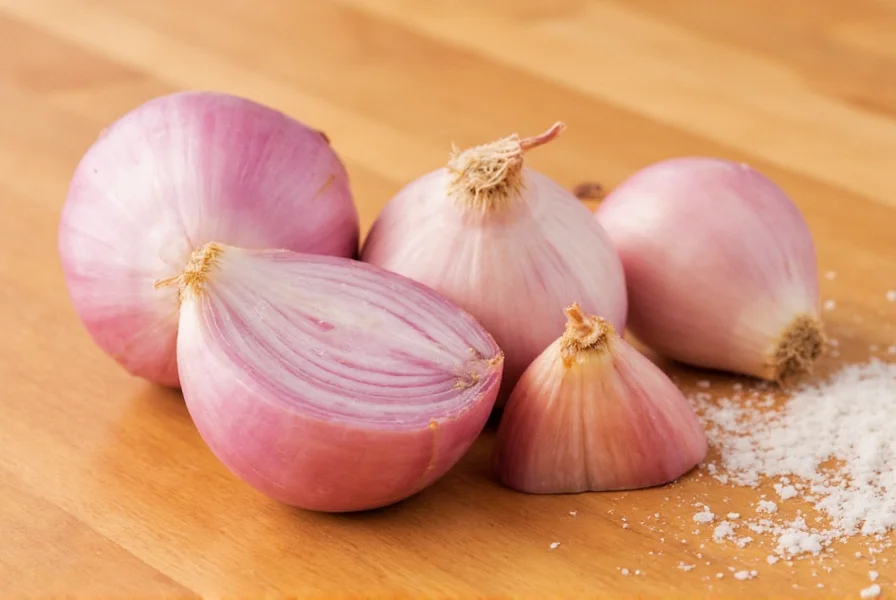
The Science Behind Onions
Onions belong to the Allium family and contain sulfur compounds that create their characteristic pungent smell when raw. According to research published in the Journal of Agricultural and Food Chemistry, these sulfur compounds break down during cooking, transforming the flavor profile.
When onions are cut, enzymes react with sulfur-containing compounds to produce volatile gases that cause tears. However, when cooked, these compounds transform:
- Sulfur compounds break down into milder, sweeter compounds
- Natural sugars caramelize (Maillard reaction)
- Glutamate becomes more bioavailable
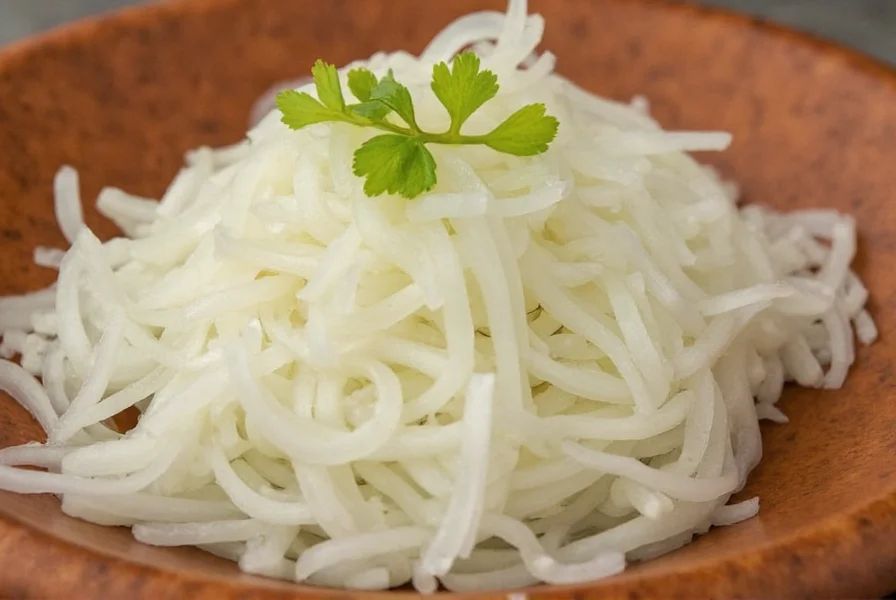
Do Onions Have Umami?
Yes, onions contain umami, but it's subtle and develops significantly during cooking. Raw onions have minimal umami, but cooked onions show measurable umami characteristics.
According to the USDA FoodData Central database, onions contain approximately 0.01-0.03g of free glutamate per 100g. While this is lower than foods like Parmesan cheese (1.2g/100g) or mushrooms (0.15g/100g), the glutamate becomes more bioavailable during cooking.
Research from the Institute of Food Technologists confirms that caramelized onions develop significantly higher umami intensity than raw onions due to:
- Increased glutamate bioavailability
- Formation of new flavor compounds during Maillard reaction
- Reduction of sulfur compounds that mask savory flavors
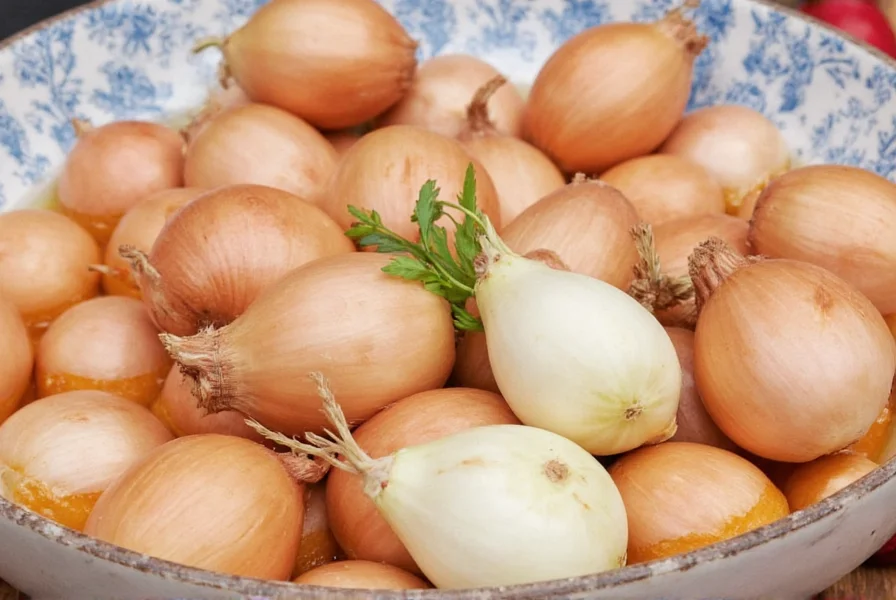
Practical Tips for Using Onions in Cooking
To maximize umami from onions, follow these evidence-based techniques:
- Caramelize properly: Cook onions over low heat for 30-45 minutes until golden brown. This allows maximum glutamate release and sugar caramelization.
- Add fat: Cooking onions in butter, olive oil, or bacon fat enhances flavor extraction and helps distribute umami compounds.
- Combine with other umami sources: Pair onions with mushrooms (rich in guanylate), tomatoes (rich in glutamate), or soy sauce for synergistic umami effects.
- Use in stocks and sauces: Onions form the flavor base for many stocks and sauces, where their umami compounds blend with other ingredients.
- Roast whole: Roasting whole onions concentrates flavors and creates deeper umami notes than sautéing.

Buying Guide for Onions
| Type of Onion | Flavor Profile | Best For | Recommended Uses |
|---|---|---|---|
| Yellow Onions | Strong, pungent | Stews, roasts, sautés | Great for caramelizing or adding depth to soups and braises. Highest glutamate content when cooked. |
| White Onions | Mild, slightly sweet | Salads, salsas, Mexican cuisine | Perfect for fresh toppings or light cooking. Lower sugar content than yellow onions. |
| Red Onions | Sweet, juicy | Grilled, sliced raw, salads | Excellent for adding color and mild sweetness to dishes. Less suitable for long cooking. |
| Shallots | Delicate, sweet | French cuisine, sauces, dressings | Used in gourmet cooking for their refined flavor. Higher concentration of flavor compounds per weight. |
| Leeks | Mild, sweet | Soups, gratins, roasted | Great for adding subtle onion-like flavor without sharpness. Lower glutamate content than bulb onions. |
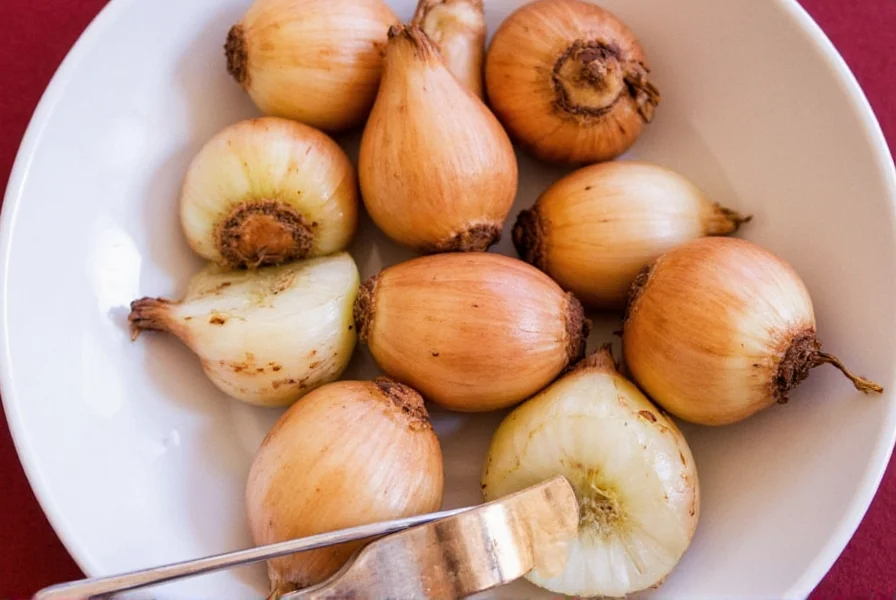
Key Features to Look For When Buying Onions
- Appearance: Choose firm, unblemished onions with tight skins. Avoid those that are soft, sprouting, or showing signs of mold.
- Smell: Fresh onions should have a strong, pungent aroma. If they smell musty or stale, they may not be at their best.
- Weight: A good onion will feel heavy for its size, indicating that it's full of moisture and not dried out.
- Storage: Store onions in a cool, dry place away from direct sunlight. They can last for several weeks if stored properly.
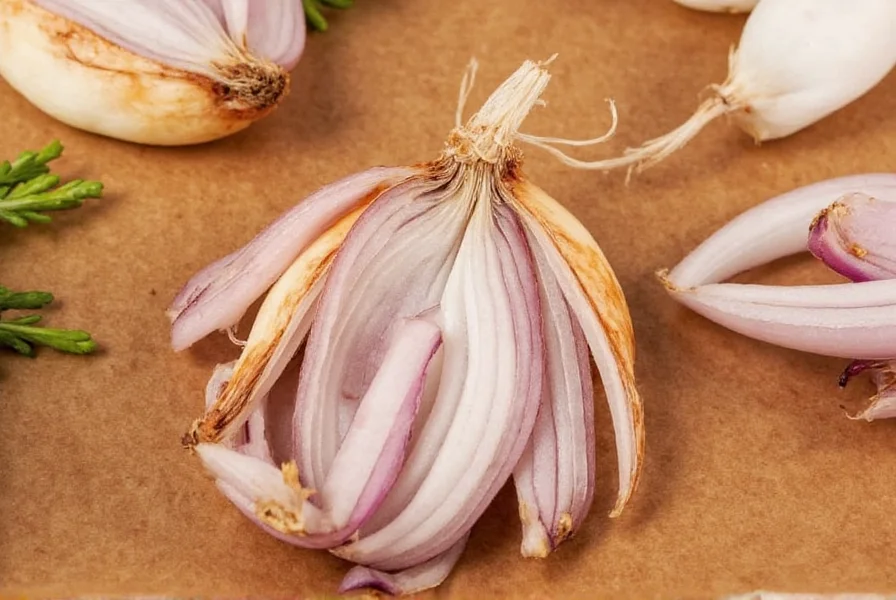
Frequently Asked Questions About Onions and Umami
Do onions have umami?
Yes, onions do contain umami, but it's subtle and becomes more pronounced when cooked. Raw onions are primarily known for their sharpness, but when caramelized or cooked slowly, the natural sugars caramelize and sulfur compounds break down, revealing a deeper, more savory flavor profile. Onions also contain small amounts of free glutamate, the amino acid associated with umami taste. According to USDA FoodData Central, onions contain approximately 0.01-0.03g of free glutamate per 100g.
How does cooking affect the umami in onions?
Cooking transforms onions significantly. When cooked slowly over low heat (especially caramelizing), the sulfur compounds that give raw onions their pungency break down, while the natural sugars caramelize. This process creates a sweeter, milder flavor with enhanced savory depth that aligns with umami characteristics. The longer and slower you cook onions, the more umami flavor develops. Research from the Journal of Agricultural and Food Chemistry shows that caramelized onions can have up to 50% more bioavailable glutamate than raw onions.
What's the best way to bring out umami in onions?
The best method is slow caramelization. Cook onions over low heat for 30-45 minutes, stirring occasionally, until they turn a deep golden brown. Using fat like butter, olive oil, or bacon fat enhances the process. Pairing onions with other umami-rich ingredients like mushrooms, tomatoes, or soy sauce creates a synergistic umami boost in your dishes. The Maillard reaction during cooking creates new flavor compounds that enhance umami perception.
Are some onion varieties higher in umami than others?
Yellow onions tend to have the most potential for developing umami when cooked, as they have higher sugar content which caramelizes well. Shallots also develop wonderful savory notes when cooked. While all onion varieties can contribute to umami when properly prepared, yellow onions are generally preferred for dishes where deep umami flavor is desired. According to USDA data, yellow onions contain approximately 15-20% more sugar than white onions, which contributes to better caramelization and umami development.
Can onions replace other umami-rich ingredients?
While onions alone won't provide the same level of umami as ingredients like aged Parmesan or soy sauce, they can significantly enhance the umami profile of a dish. When properly caramelized and combined with other umami sources, onions can reduce the need for additional umami boosters. They work particularly well as part of a flavor foundation in stocks, sauces, and braises. In fact, many professional chefs consider caramelized onions a "secret umami weapon" in their culinary arsenal.
Conclusion
In conclusion, while onions may not be the most obvious source of umami, they certainly contribute to the savory depth of a dish, especially when cooked. The combination of natural sugars, sulfur compounds, and trace amounts of glutamate creates a flavor profile that can enhance the umami experience in various recipes.
Whether you're caramelizing onions for a rich sauce, roasting them for a sweet and savory side, or using them as a base for a stew, understanding their flavor potential can help you make better culinary choices. So next time you reach for an onion, remember: it might just add that extra layer of depth you didn't know you needed.
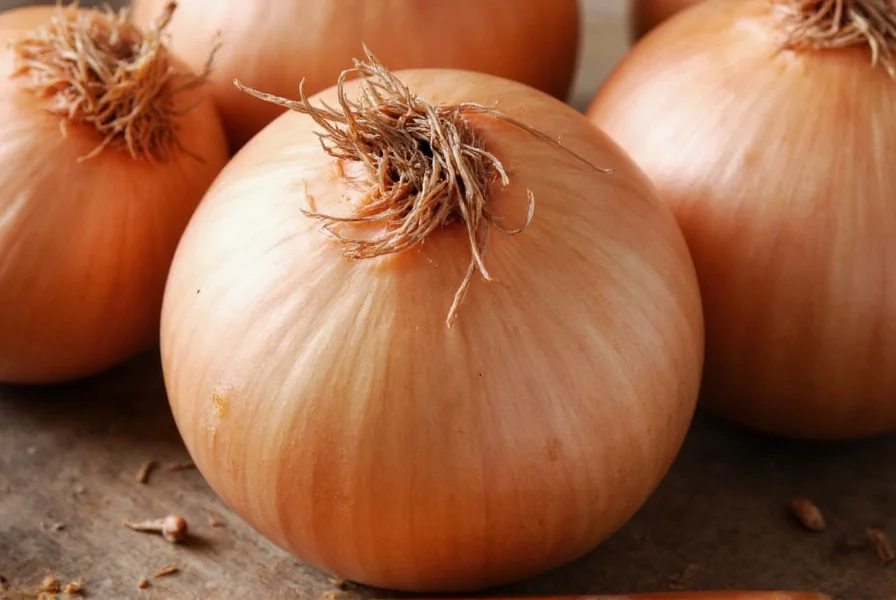
Do onions have umami? Yes—but only after they've been transformed through cooking.

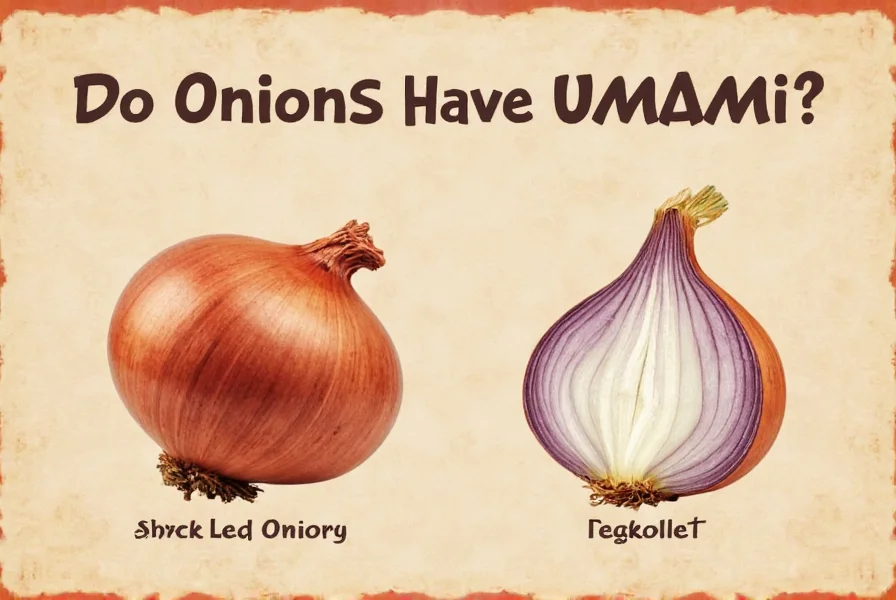









 浙公网安备
33010002000092号
浙公网安备
33010002000092号 浙B2-20120091-4
浙B2-20120091-4